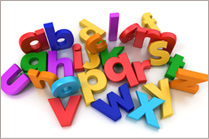Agency Accreditation
Private U.S. adoption service providers generally will not be permitted to provide adoption services in intercountry adoption cases involving the United States and a Convention country unless it is accredited, temporarily accredited, approved, or is supervised by an accredited agency, temporarily accredited agency, or approved person.
The accreditation regulations set standards for accreditation and approval that are designed to ensure that U.S. accredited agencies and approved persons perform their duties in accordance with the Hague Adoption Convention and the Intercountry Adoption Act (IAA).
If your organization engages only in intercountry adoptions between the United States and another country that is not a Convention country, it will not need to be accredited, temporarily accredited, or approved.
Adoption Services
Organizations and individuals that provide any one of six adoption services must be accredited, temporarily accredited, approved, or supervised. The six adoption services are:
- Identifying a child for adoption and arranging an adoption;
- Securing consent to termination of parental rights and to adoption;
- Performing a home study and report on prospective adoptive parent(s) or a background study and report on a child;
- Making a non-judicial determination of a child's best interests and of the appropriateness of an adoptive placement;
- Monitoring a case after a child has been placed with prospective adoptive parent(s) until final adoption; and
- Assuming custody of a child and providing childcare or any other social service when necessary because of a disruption pending alternative placement.
Eligibility for Accreditation
Private nonprofit and for-profit organizations and individuals are eligible to apply. Under the accreditation regulations, nonprofit organizations (called agencies) may apply to be accredited or temporarily accredited to provide intercountry adoptions under the Convention. For-profit organizations and individuals (both called persons) may apply to be approved. (With a few exceptions, there is no difference between the services accredited agencies and approved persons can provide.)
- Nonprofit Agencies apply for accreditation
- Individuals or for-profit organizations apply for approval
A Convention country is not required to permit accredited agencies or approved persons to operate in its territory; it may insist that adoption services be handled by governmental authorities instead. An adoption service provider may not provide adoption services in another Convention country unless it is authorized to do so under that country's laws.
Accrediting Entities
The Department of State has designated two accrediting entities to perform accreditation functions. They are:
- Council on Accreditation
- Colorado Department of Human Services
- The Department of State will monitor these accrediting entities to ensure that each performs its functions in compliance with the Convention, the IAA and its implementing regulations, other applicable laws, and the accrediting entity agreement.
Performing Adoption Services Without Accreditation
An agency or person engaged in intercountry adoptions does not necessarily have to apply for accreditation or approval to perform adoption services in Convention adoptions. It may instead choose to work under the supervision of another provider that is accredited or approved, or to provide only certain limited services that may be provided in Convention cases without being accredited or approved or supervised. It may also choose to provide services only in cases not subject to the Convention. We encourage agencies and persons to choose the path that makes the most sense for their organization.
The IAA and its implementing regulations created the accreditation process to accredit agencies and to approve persons to act as primary providers in Convention cases. The intent was to give prospective adoptive parents one accredited/approved adoption service provider that would be responsible for implementing a service plan to provide (either directly or through arrangements with other providers) all of the adoption services in connection with a Convention adoption.
The categories supervised and exempted providers were specifically created by the IAA and its implementing regulations to enable smaller or specialized providers to operate under the Hague system in the United States and to work in concert with primary providers. The fact that such a provider is not "accredited" or "approved" does not reflect negatively on the provider's ability to provide a particular adoption service. It simply reflects the fact that such a provider is not in a position to act as a primary provider.
There is also a difference between legal services and adoption services. In short, legal services are services other than the adoption services defined above that relate to providing legal advice and information, and drafting legal documents (see 22 CFR 96.2). Attorneys need to look closely at their practices to determine whether they are providing adoption services as defined in addition to legal services. If an attorney is providing adoption services s/he must be accredited, approved, or act under the supervision of an accredited or approved adoption service provider.



